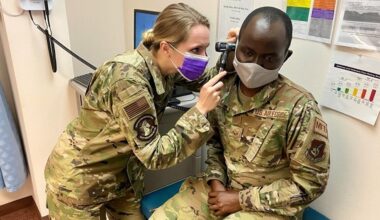Retirement doesn’t always mean the end of a fulfilling career, especially for nurses. Many retired nurses seek opportunities that allow them to stay active, utilize their skills, and continue contributing to the healthcare industry. Whether for financial reasons, a desire to stay connected to the profession, or simply a passion for helping others, retired nurses have several job options that can fit into their post-retirement lifestyle. These roles are often less physically demanding and provide flexible hours, making them ideal for retired professionals.
1. Part-Time or Per Diem Nursing
One of the most straightforward ways for retired nurses to continue working is through part-time or per diem nursing. These roles offer the flexibility to choose shifts that fit into their schedules. Hospitals, clinics, and long-term care facilities often need experienced nurses to fill in gaps, especially during busy periods. This option allows retired nurses to stay clinically active without the demands of a full-time schedule.
2. Telehealth Nursing
Telehealth has grown significantly, providing an excellent opportunity for retired nurses to work from the comfort of their homes. Telehealth nurses offer medical advice, assess patient symptoms, and provide support through phone or video calls. This role leverages a nurse’s experience and knowledge while minimizing the physical demands typically associated with traditional nursing roles. It’s an ideal job for those who want to continue contributing to patient care without the need to be on-site.
3. Nurse Educator
Retired nurses possess a wealth of knowledge and experience that can be passed on to the next generation of nurses. Becoming a nurse educator allows retired nurses to work in academic settings, teaching nursing students or providing continuing education to practicing nurses. These positions can be found in universities, community colleges, and hospital education departments. The role is often flexible, with options for part-time or adjunct positions, making it suitable for retired professionals.
4. Case Management
Case management is another excellent option for retired nurses. Case managers coordinate patient care, ensuring that individuals receive the necessary services and resources, particularly those with chronic illnesses or complex health needs. This role requires strong organizational and communication skills, as well as the ability to work with various healthcare providers, insurance companies, and patients. The position is less physically demanding and can often be done remotely, providing a good balance for retired nurses.
5. Health Coaching
Health coaching is a growing field where retired nurses can use their expertise to guide individuals in managing their health and wellness. Health coaches work with clients to set and achieve health-related goals, such as weight loss, smoking cessation, or managing chronic conditions. This role allows retired nurses to work independently or as part of a wellness program, often with flexible hours and the option to work from home.
6. Clinical Research Nursing
Retired nurses who have an interest in research may find clinical research nursing to be a rewarding post-retirement career. In this role, nurses assist in conducting clinical trials, collecting data, and ensuring that studies comply with ethical standards. Clinical research positions can be found in hospitals, research institutions, and pharmaceutical companies. These roles often offer flexible schedules and the opportunity to contribute to advancing medical knowledge.
7. Consulting
Nurses with extensive experience and specialized knowledge in a particular area of healthcare can consider becoming consultants. Healthcare consulting involves advising organizations on improving patient care, streamlining operations, or ensuring compliance with regulations. This role can be highly flexible, allowing retired nurses to take on projects that interest them while working on their terms.
8. Occupational Health Nursing
Occupational health nurses work with businesses to ensure the health and safety of their employees. This role involves conducting health assessments, developing safety programs, and providing care for work-related injuries or illnesses. Retired nurses can work part-time or as independent contractors, offering their services to multiple companies. The job is less physically demanding and often involves more administrative tasks, making it suitable for those looking to remain in the workforce without the rigors of traditional nursing roles.
9. Volunteer Nursing
For retired nurses who wish to give back to their communities, volunteer nursing can be an incredibly fulfilling option. Many nonprofit organizations, clinics, and international aid agencies need experienced nurses to provide care, health education, and support to underserved populations. Volunteer positions can range from local community clinics to international missions, allowing retired nurses to choose roles that match their interests and availability.
Conclusion
Retirement offers nurses the opportunity to explore new roles within the healthcare industry that align with their lifestyle and interests. Whether through part-time work, teaching, or volunteer opportunities, retired nurses have many options to continue making a difference in the lives of others. By selecting a role that fits their post-retirement goals, retired nurses can enjoy the benefits of staying active and engaged while still leveraging their valuable skills and experience.






